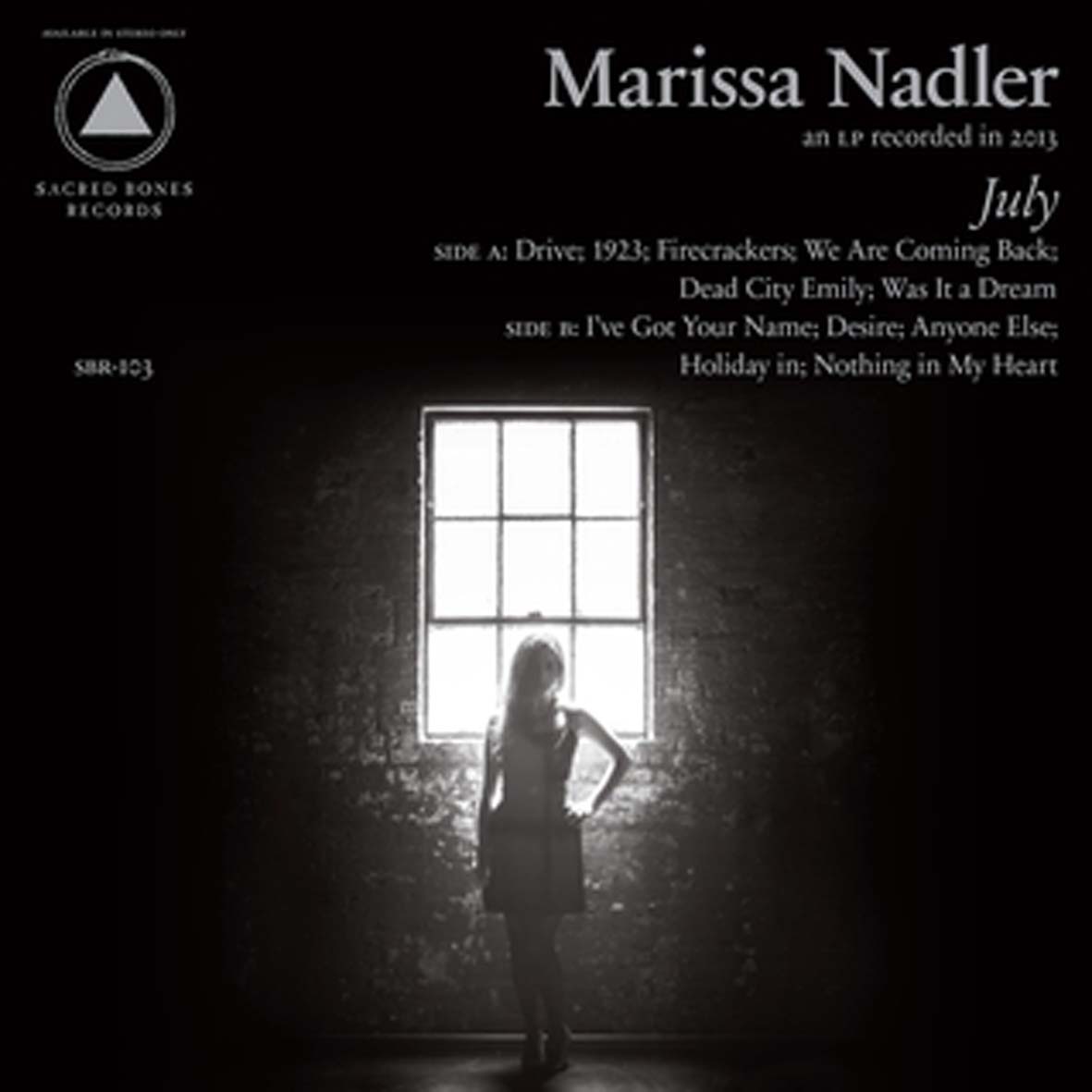
In many respects, July marks a huge leap forward for Nadler, as she moves from self-releasing her work to joining the very hip and influential Sacred Bones and Bella Union labels while enlisting some impressive and unexpected collaborators along the way in violist Eyvind Kang and Sunn O))) producer Randall Dunn.  Despite those seemingly major changes, however, July still sounds exactly like a Marissa Nadler album and continues her evolution into of the best songwriters around these days.  I am not necessarily sure that it is her best album ever, but it certainly comes very close if it is not.  At the very least, it boasts a couple of the most achingly beautiful songs that I will hear this year.
Sacred Bones (US) / Bella Union (UK)
Marissa does not waste any time in making an impression with this album, as July opens with one of its strongest pieces, "Drive."  There are a lot of wonderful things that I could say about the nuanced arrangements, warm sound, and vocal harmonies, but all of that is secondary to the song itself, as the sad and swooning chorus would probably still probably still sound heartbreaking in a poorly recorded a capella performance. Aside from being a great song, "Drive" also makes the overarching theme of July quite clear: this is most definitely a break-up album.
I suppose practically every Marissa Nadler album sounds like a break-up album, but this one is different.  Rather than wallowing in immediate post-break-up heartbreak, July seems to look back upon old wounds with a wistful mixture of tenderness, wisdom, and hope.  For example, the lines from "Drive" that stick in my mind are not the repeated "you're never coming back," but rather the refrain of "nothing like the way it feels...to drive."  The lingering pain is certainly still evident, but it is not the focus–Nadler proves herself to be uniquely adept at finding the poetry in a wake of broken relationships.
July's other immediately apparent highlights are the swaying, bittersweet "Firecrackers" and the haunting "Was it a Dream?"  Much like "Drive," both boast some absolutely lovely harmonies and unforgettable hooks, particularly the devastating final third of the latter (the final "it's the same world, but everything is new" completely kills me). The charms of "Firecracker" are slightly more subtle, but no less effective, offering up some of Nadler's best and most moving lyrics.  I was especially taken with the line "I know better now, I don't call you up at night 'cause baby you're a ghost and I have changed."
As for the rest of the songs...well, they are all quite good too.  None are as immediately striking as the aforementioned three, but they are certainly all enjoyable in their own ways.  In fact, some of them might even be slow-burning dark horse contenders for my future favorite, as I am constantly stuck by freshly moving turns of phrase almost every time I listen.  To my ears, Nadler does not make a single false or dubious move anywhere on July, avoiding both melodrama and any temptation to dilute her simple, direct songs with overly lush arrangements.  Also, Marissa seems to have mastered the perfect balance between melancholy, brightness, and warmth.  All of that cumulatively amounts to a very listenable, moving, and wonderful album that will be all over this year's "best of" lists come December.
Samples:
 
 
Read More

